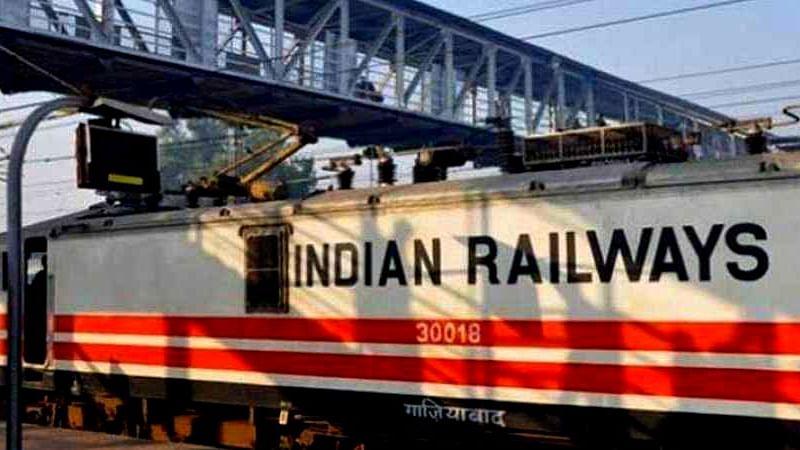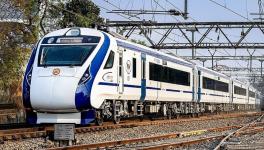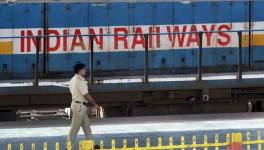Railways Plan to Levy User Fees After Bihar Elections

New Delhi: At a time when the COVID-19 pandemic is showing no signs of easing, the Indian Railways is finalising an action plan to increase train fare by levying a user fee in busy stations, a practice prevalent in civil aviation sector.
With the Railways’ facing a huge loss in the passenger business, the user fee, slated to be around Rs 50, will be levied in about 700 major railway stations across the country. There are about 7,000 stations in the Indian Railways’ network.
Since the user fee will form a part of the fare, ticket rates will not be affected for stations where it has not been levied.
Though the exact amount to be levied as user fee is being worked out by the Traffic Directorate, it is likely to be around Rs 50. Recently, the price of a platform ticket has been hiked to the same amount to curb crowds on platforms keeping COVID-19 in mind, sources said.
Sources added that the user fee implementation could be done after the Bihar elections. The Railways has maintained that the user fee would be used for developing passenger amenities at stations.
As in the case of air travel, the user fee will be part of train ticket fares for major stations with a high footfall, and those that are being redeveloped, in order to generate revenue to provide better facilities for passengers.
However, the recent development seems to be a shift from the Railways’ earlier stand. The organisation has maintained that user fee will only be charged after the development of stations offering improved amenities.
The development is significant as the railways is going ahead with private train operations on 109 routes.
Defending the decision, a senior railway official said that a user charge is “essentially a small token amount which, when collected, will be ploughed back into the improvement of conveniences and facilities for all passengers at the railway station. The fee is expected to be very reasonable and minimal so that there is no burden on anyone, especially the common people.”
“This sum will only be levied at stations where the footfall is high, and will only be collected by the facility management when the development of the station is complete. Prior to that if a need is felt to levy any user charge, it will only go to the Railways and will be put back for the improvement of facilities for common passengers only. The value of the benefits will outweigh the minimal charge,” the official added.
The Railways is speeding up the bidding process for 50 major stations including New Delhi, Guwahati, Patna, Gwalior, Surat, Tirupati, Chandigarh, Anand Vihar, Nagpur and CST in Mumbai.
“We are going to keep a very small amount as user charge. We will issue a notification for the user charge for stations, including existing ones which are being redeveloped, and also those which are not being redeveloped,” Railway Board Chairman and CEO V.K. Yadav has said.
Stressing on his contention that the charge will be affordable and will not pinch passengers, Yadav said it was important as the Indian Railways is focusing on providing world class facilities.
However, railway unions are opposed to the decision, and have said that it will be an added burden on the common man. “This is not the time to impose a user fee as poor passengers have to pay more for train tickets. The airport example should not be replicated for train passengers. After all, the train is largely used by the common man and an increase in fares would affect him adversely,” said All India Railwaymens Federation (AIRF) general secretary Shiv Gopal Mishra.
“The decision to raise resources through levying user fees is not right. Ultimately, these stations would be handed over to private players. It is a fact that the railways is losing money in the passenger business. But instead of raising passenger fares by levying user fees, they should review concessions for various categories. Only economically weaker sections should avail concessions,” National Federation of Indian Railwaymen (NFIR) general secretary M. Raghvaiah said.
With passenger services impacted by the pandemic, the Railways’ traffic revenue till August this year has declined by over 42 % over the corresponding period last year.
Passenger train operations were halted from March 23 owing to the nationwide lockdown to contain COVID-19. A gradual resumption of passenger train services began May 1. Freight trains, however, continued to operate.
The total amount from refunds granted up to September 10 due to the cancellation of tickets booked till April 14 – for journeys from March 22 to August 12 – was approximately Rs 3,371.50 crore, Railways Minister Piyush Goyal said in response to a question in Parliament.
As of August, the number of originating passengers has been 1.27% of the corresponding number from the same period last year while freight loading has been 86.6% from the corresponding period last year.
“Consequently, the traffic revenue for the Railways for the period, at Rs 41,844.31 crore has declined by 42.3% over the corresponding period last year,” Goyal said.
NITI Aayog chief executive officer Amitabh Kant has said that the objective is to offer 50 stations for redevelopment by the end of 2021. A pre-decided and affordable user charge will be notified by the railways and will ensure no burden on the passenger, he said. “We are looking at close to Rs one trillion investment. RFQ (request for qualification) for ten stations have been floated and got (a) good response,” he added.
The first redeveloped station, at Bhopal's Habibganj, is likely to be ready by December this year.
Get the latest reports & analysis with people's perspective on Protests, movements & deep analytical videos, discussions of the current affairs in your Telegram app. Subscribe to NewsClick's Telegram channel & get Real-Time updates on stories, as they get published on our website.
























